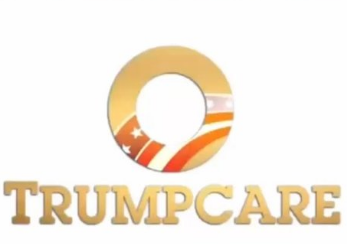
Three strategies for small business health plans
On Friday July 28 and Saturday July 29 president Trump and his press spokesperson made a series of statements indicating that he planned to sabotage a financial pillar health care system by revoking government funding for the insurance premiums working class people. The president’s actions are admittedly motivated by politics. The stated purpose of the threat is to force the US Senate to follow the president’s wishes. It is clear that the overwhelming majority of the nation’s citizens and most lawmakers, including most Republicans, do not want to see this drastic change. Reuters reports that nearly two-thirds of the country wants to either keep or modify the Affordable Care Act, popularly known as Obamacare, and that a majority of Americans want Congress to turn its attention to other priorities.
On Sunday, July 30 the presidents aides said the threatened cut of payments would come on Tuesday August 1 if the Senate does not follow the follow Trump’s directives to cancel their summer recess and vote to repeal at least some portion of the Affordable Care Act.
The president’s threat, if carried out, could have profound immediate impact on small businesses and self-employed people who make up the majority of people receiving this funding. Many of the president’s unpopular statements in the past turn out to be false (for example, a statement last week about the US banning transsexuals from the military) but there is no way to know if this stated threat has merit.
Since enactment of the Affordable Care Act in 2010, people who could not otherwise afford health insurance – about 10 million in all – are offered government subsidized coverage at a reduced cost through state health insurance exchanges. The president may have the ability to end the financing as a political weapon; at least in the short term even if the action is eventually found to be illegal in a future court decision.
Politics aside, how can a small business cope with this possibility? There are a number of strategies available; here are three possible responses that can be used alone or in combination:
Health Reimbursement Arrangements – The American Cures Act just enacted for this year provides a method where employers can provide financial assistance up to around $5,000 to employees for individual health insurance on a tax-advantaged basis. The president has not indicated any intent to sabotage this law, nor does he have the ability to do so. The total tax savings for employer plus employees can make the insurance coverage significantly more affordable. My practice offers assistance with these small business health benefits plans at a minimal fee.
Mini-med and alternate insurance – there are more affordable insurance plans available that do not meet the requirements of the Affordable Care Act. Employees typically appreciate this coverage more because it provides more “up front” benefits like coverage for routine doctor visits. The downside is that is provides little or no coverage for less common catastrophic medical expenses.
Health discount networks – More than half of the financial liability to health care consumers can be eliminated through advance fee negotiations. This negotiation must take place and be contractually bound before the point of service. That’s where discount plans come in. While these do not offer a dollar of coverage, they do reduce risk of high medical expenses. I am pleased to review the options and make recommendations for your business,
This list of strategies is not exhaustive; other possibilities may be available to cope with such a drastic threat to the stability of our current health care system. These could be considered on a case-by-case basis. I offer a no-fee telephone consultation to discuss your small business health care planning options. Some of the more popular product and service choices are listed on a state-by-state basis on my web site at www.freedombenefits.net.
[contact-form-7 id=”4556″ title=”Boilerplate Contact”]


Leave a Reply